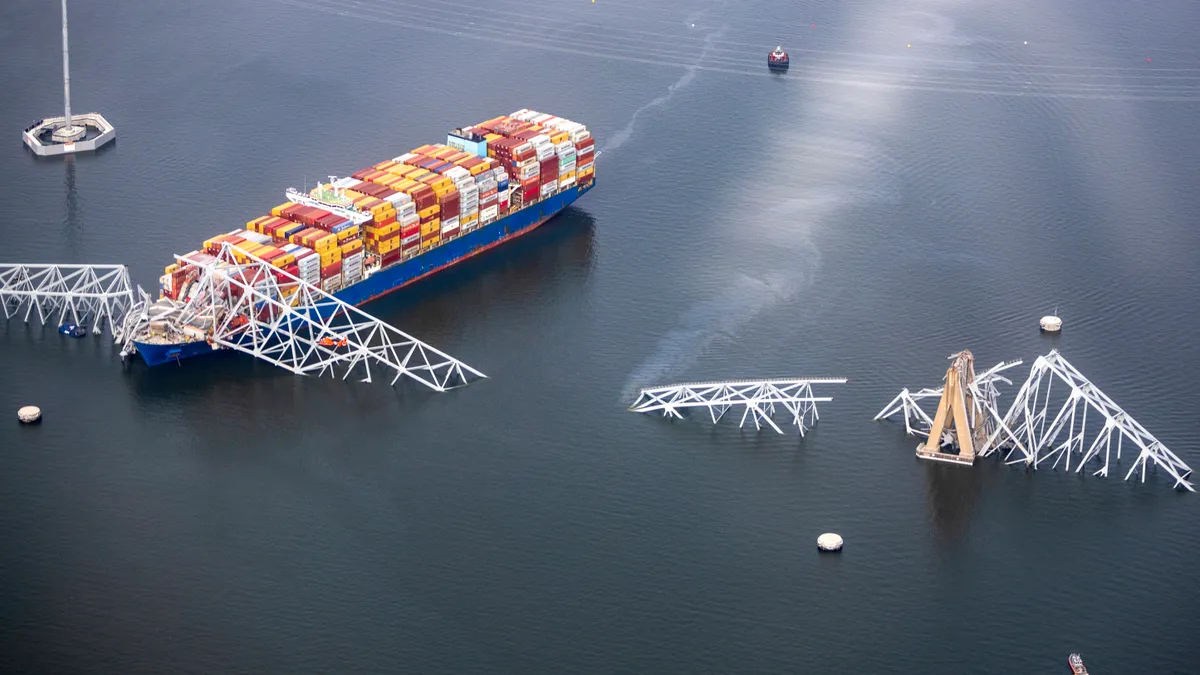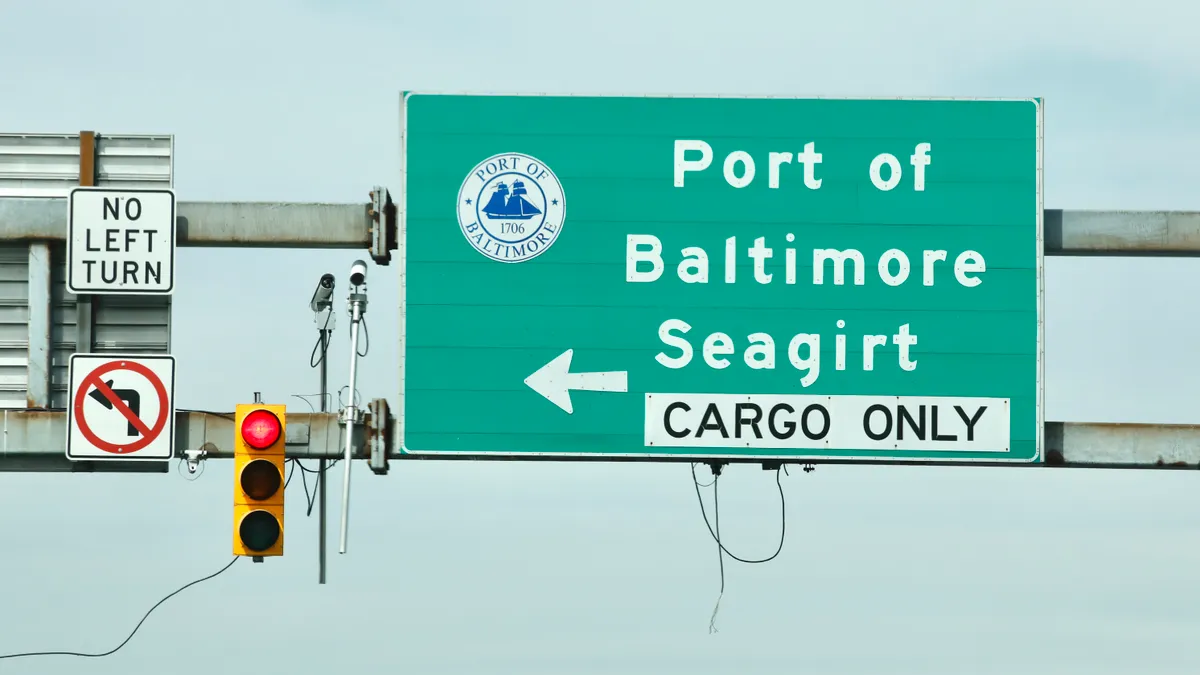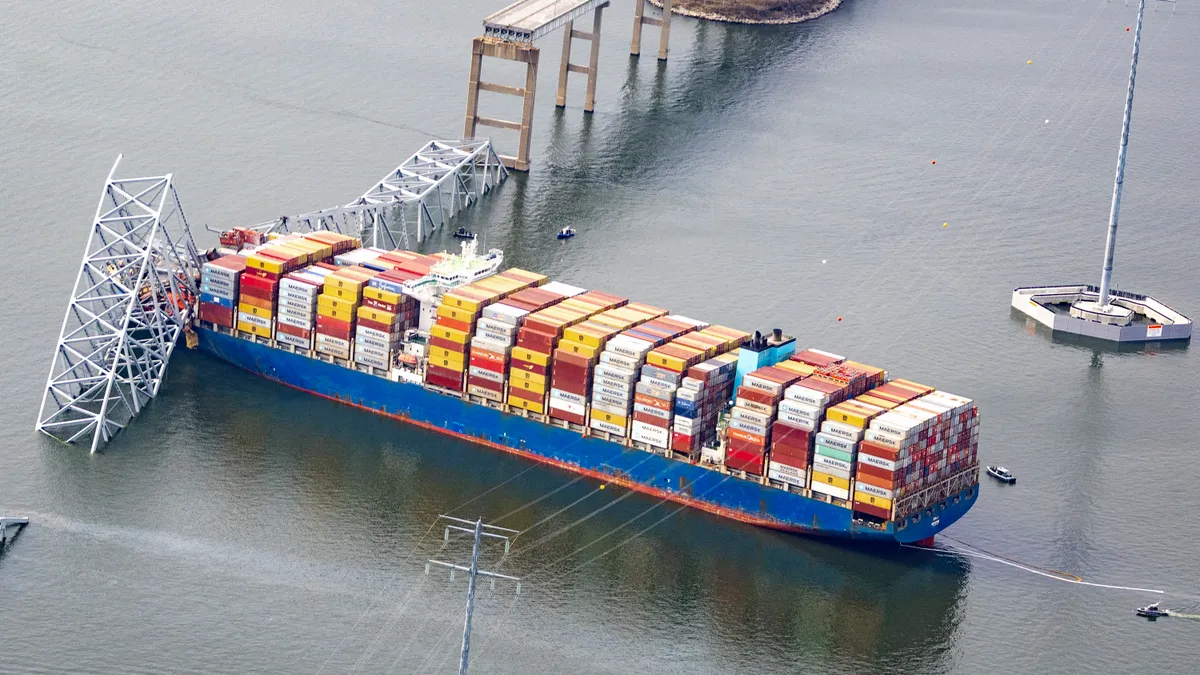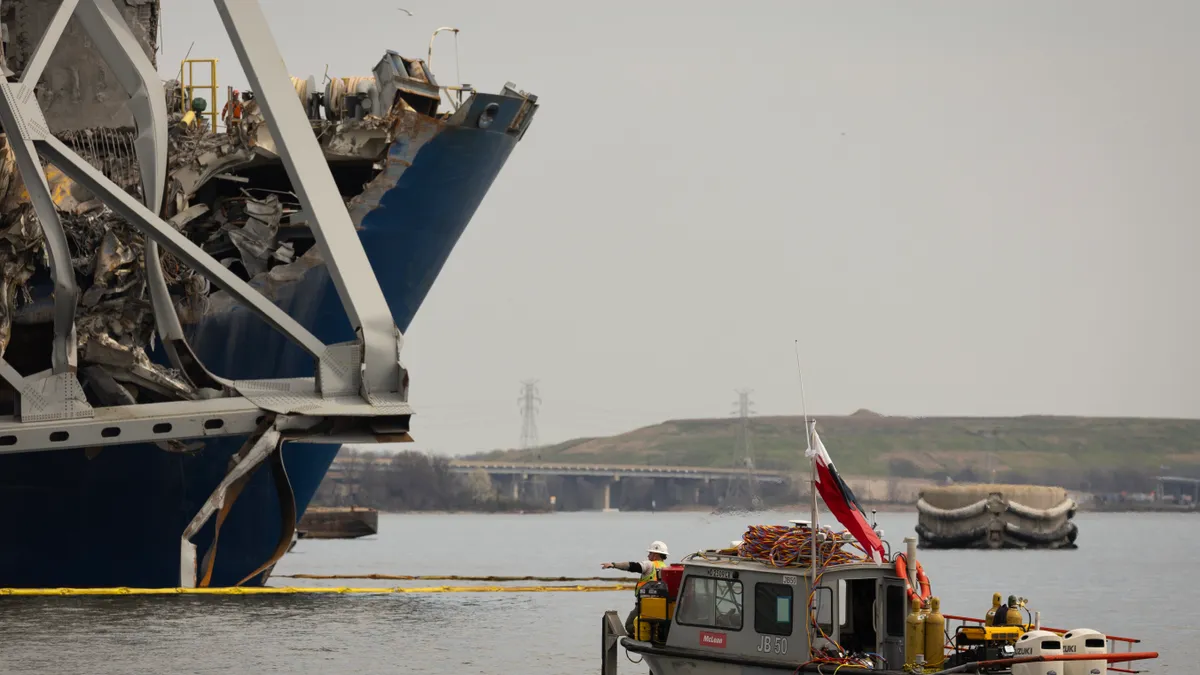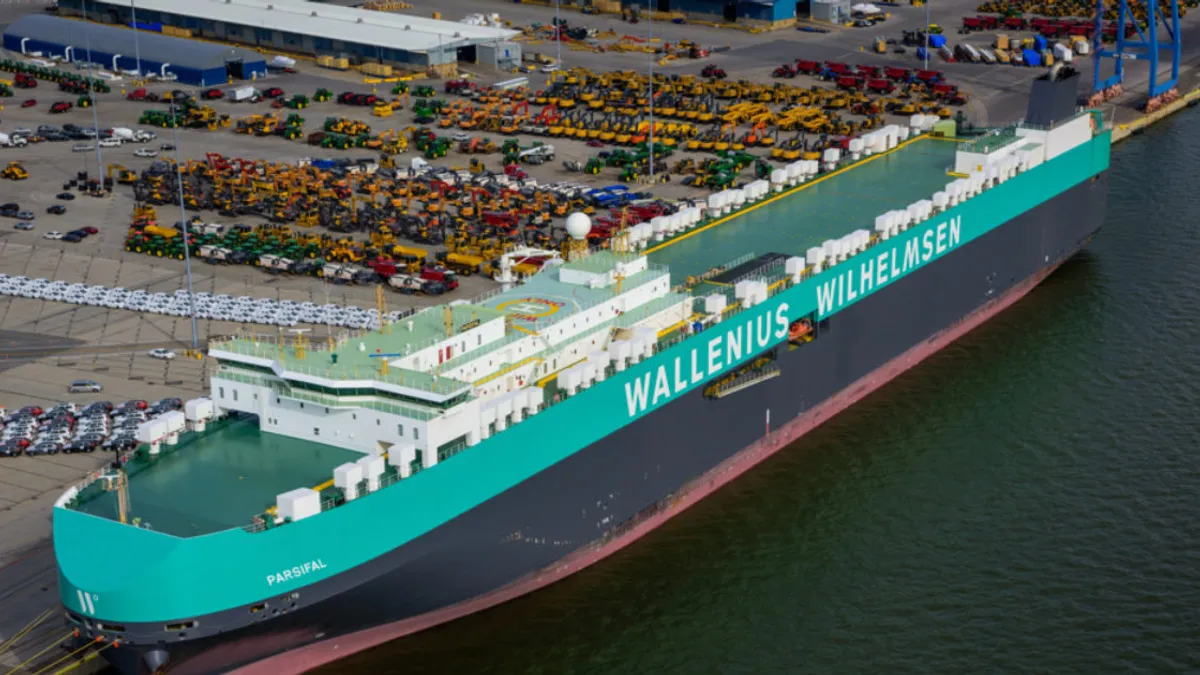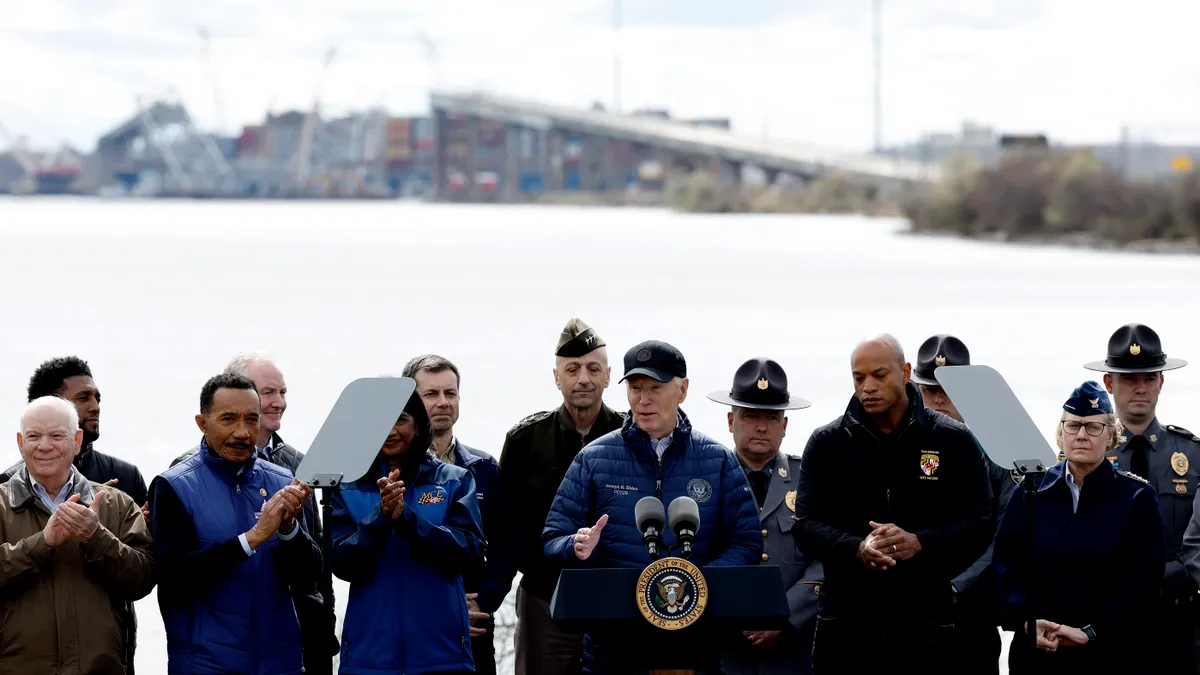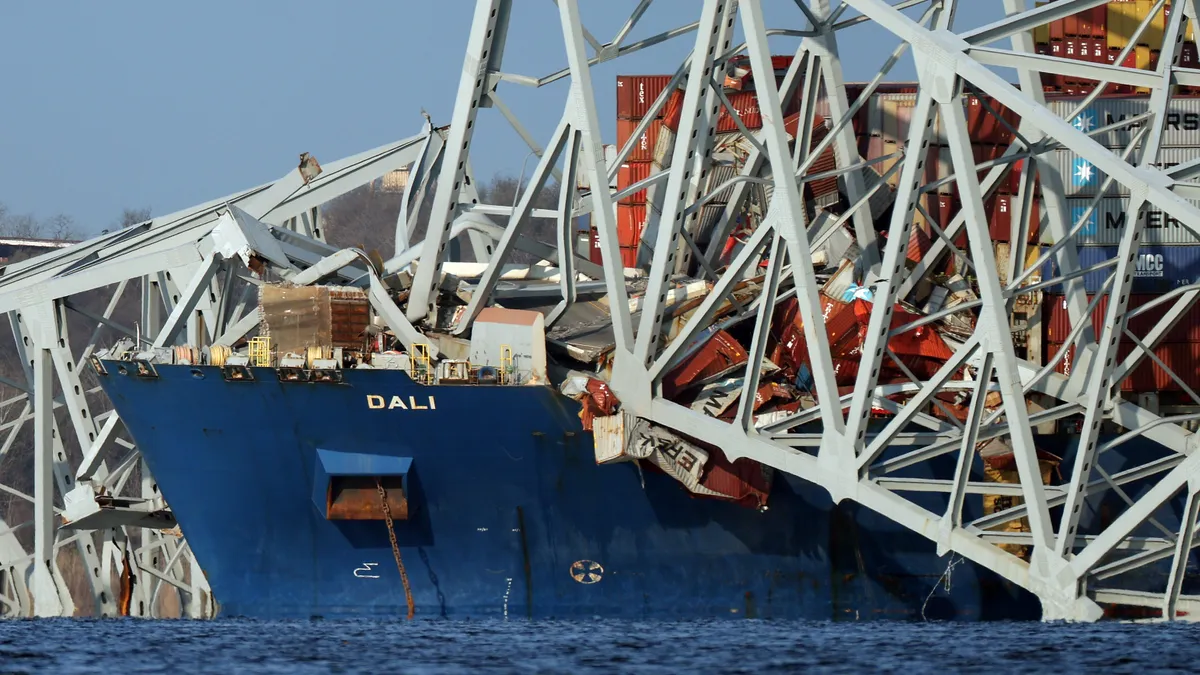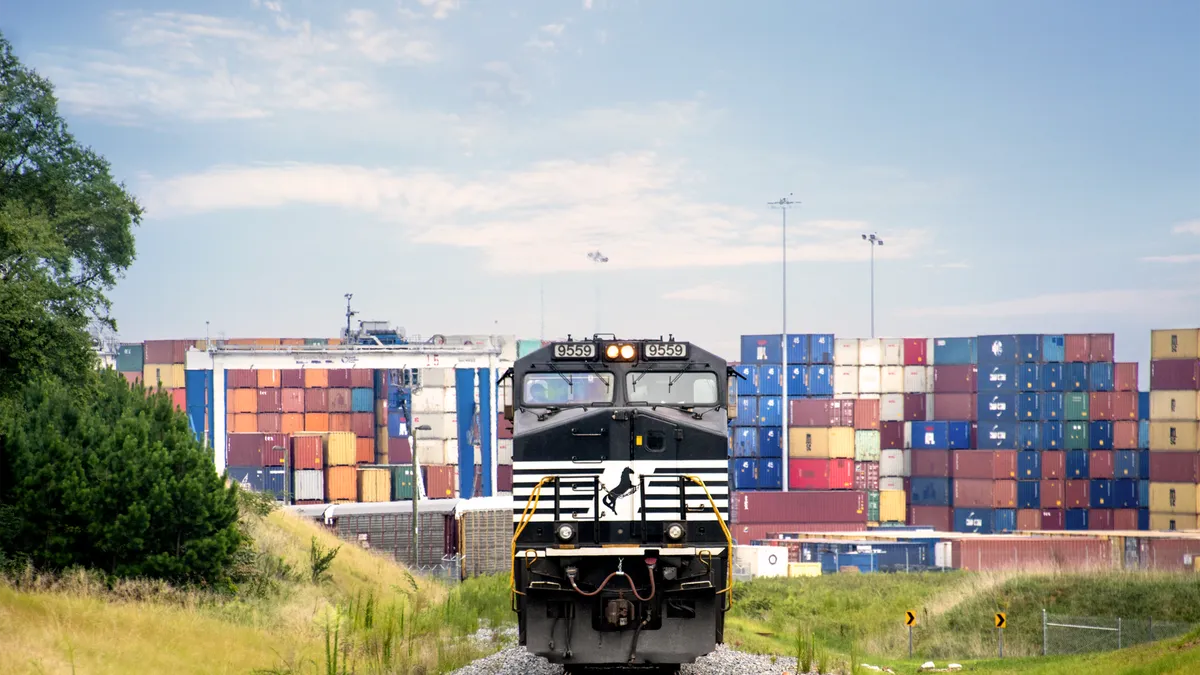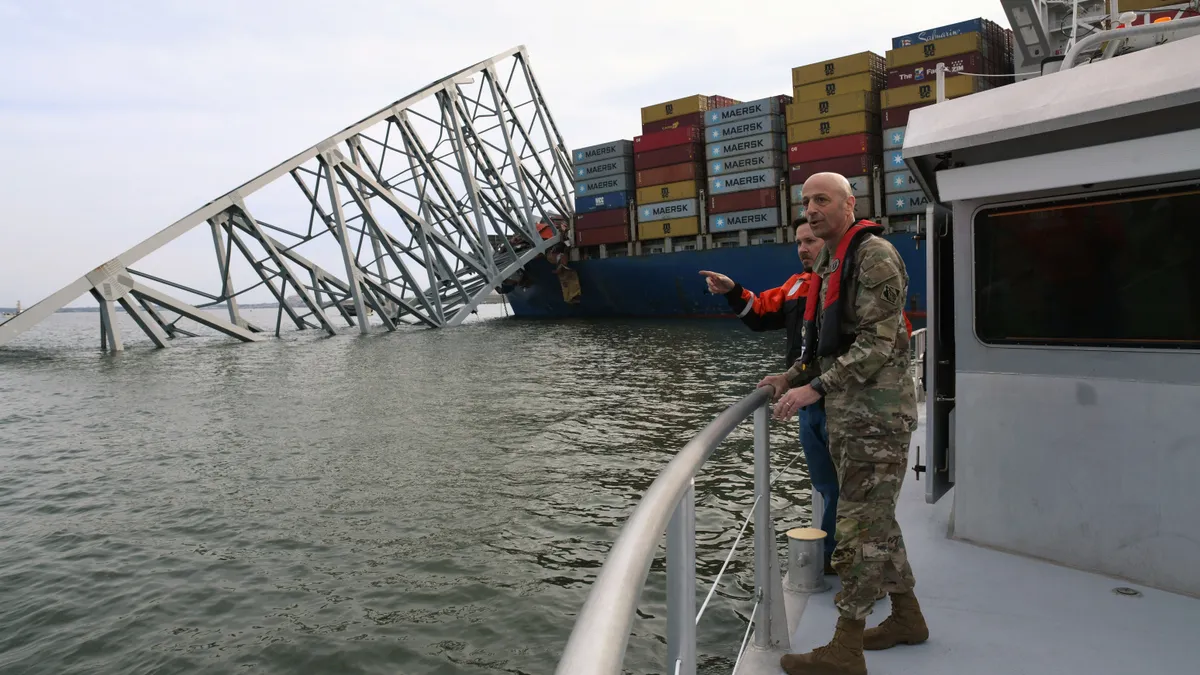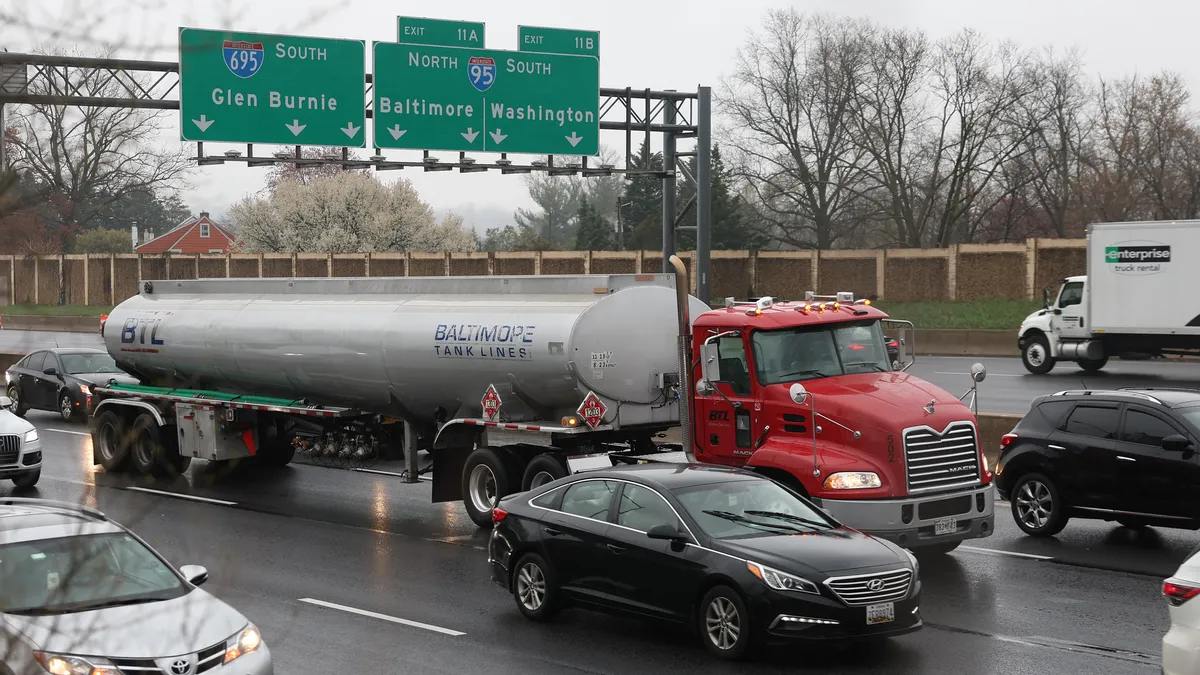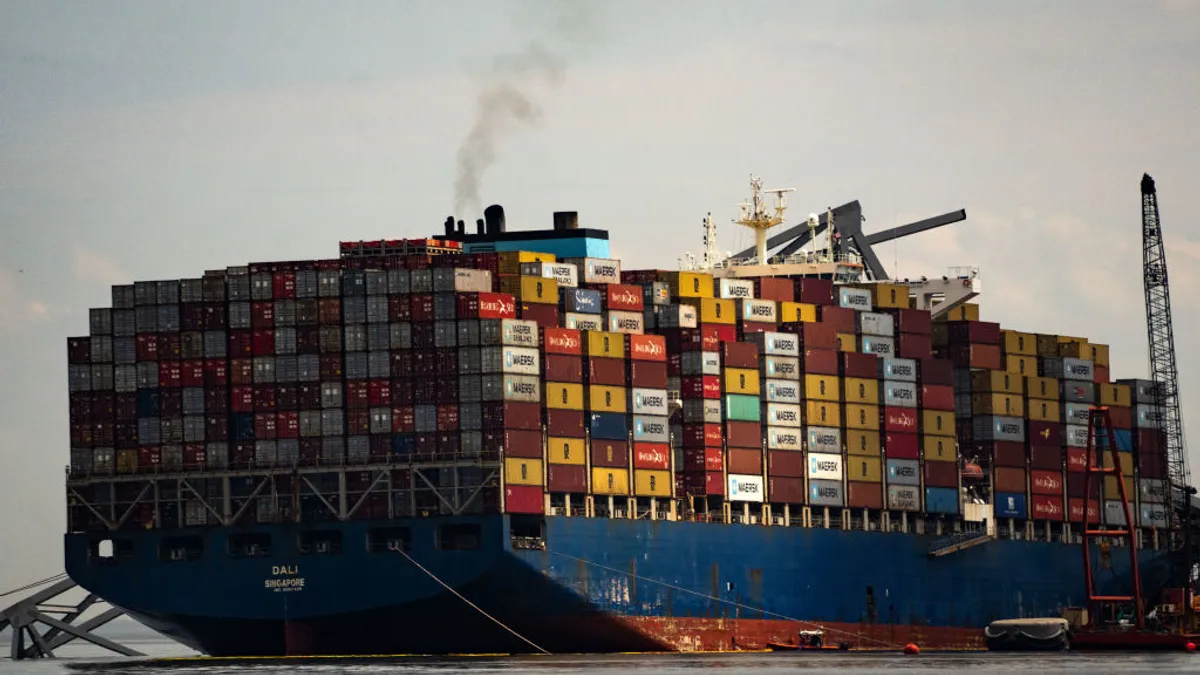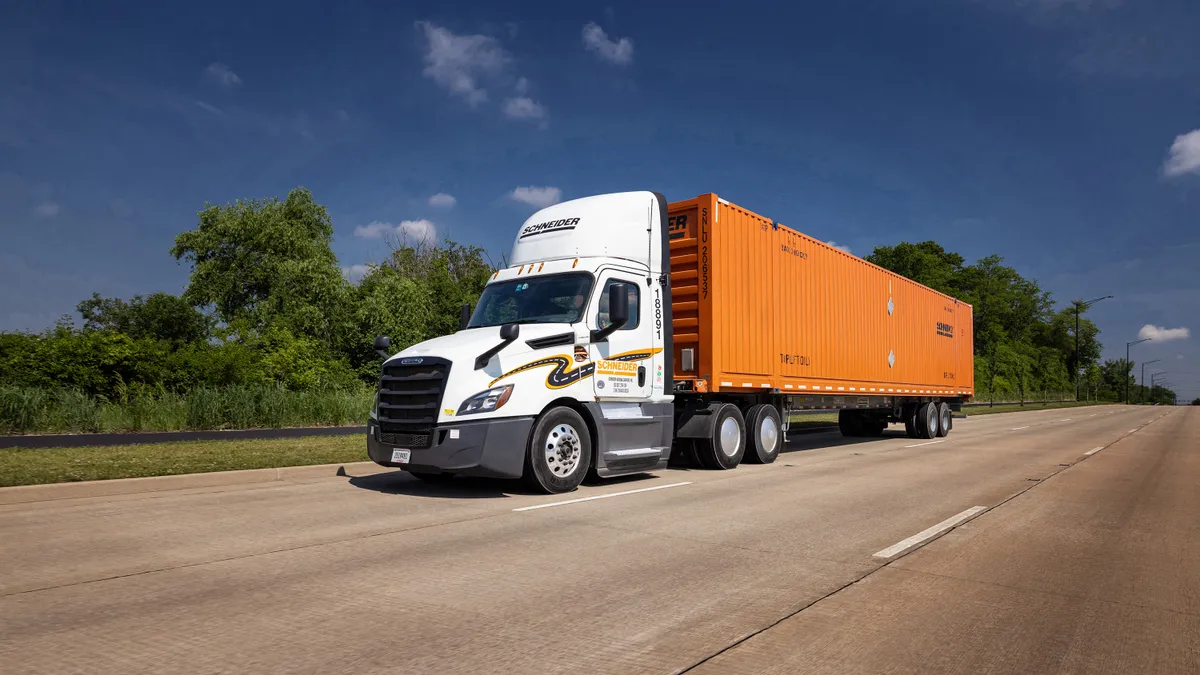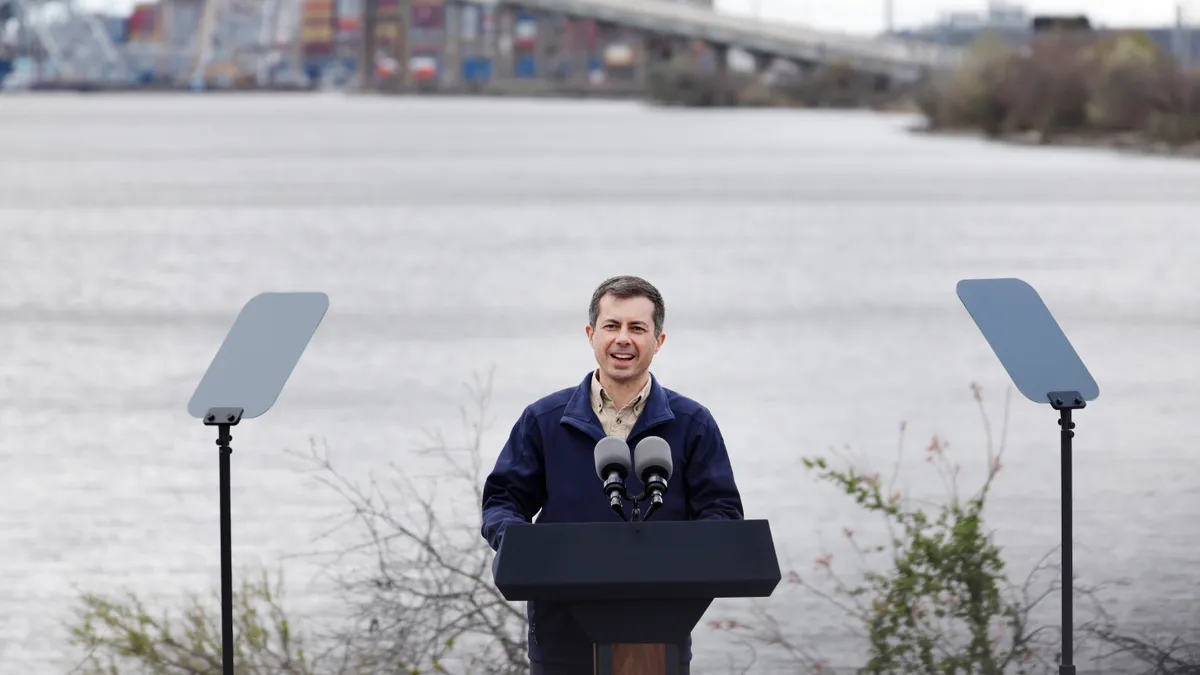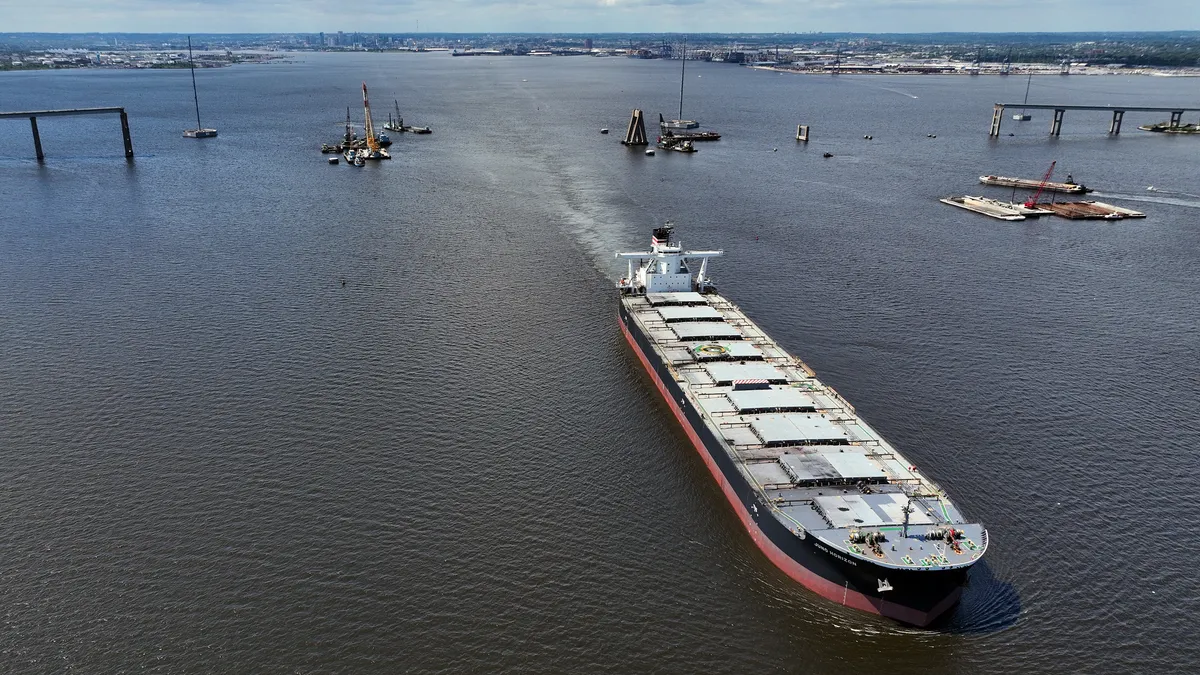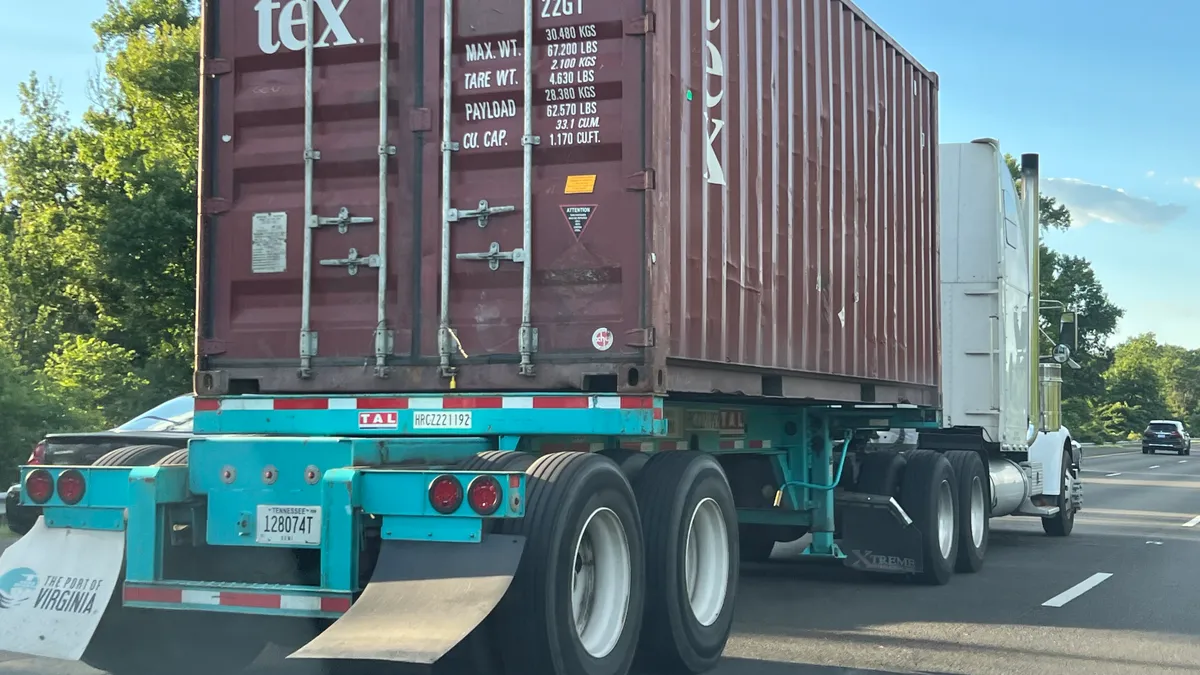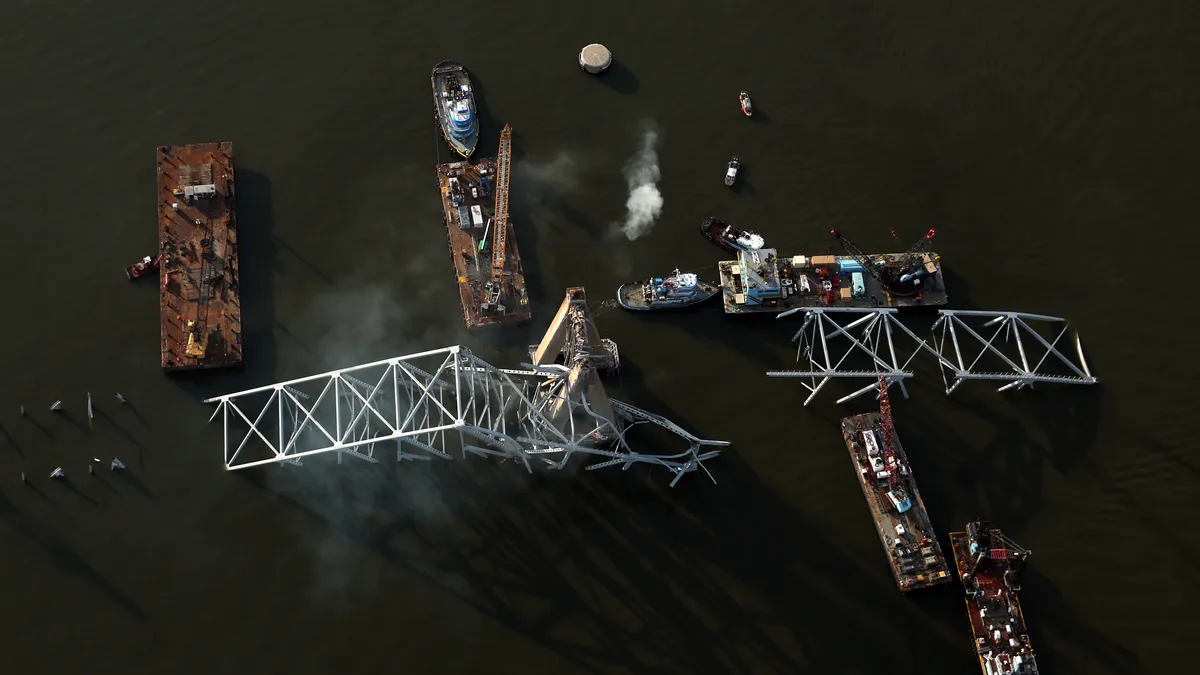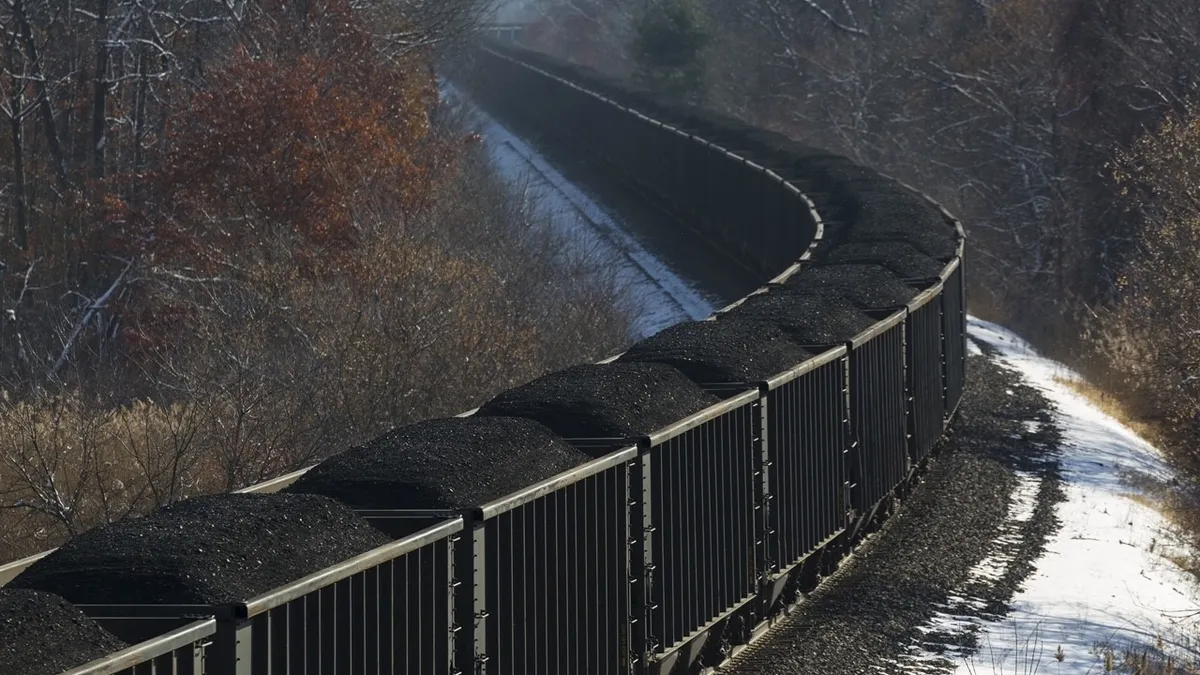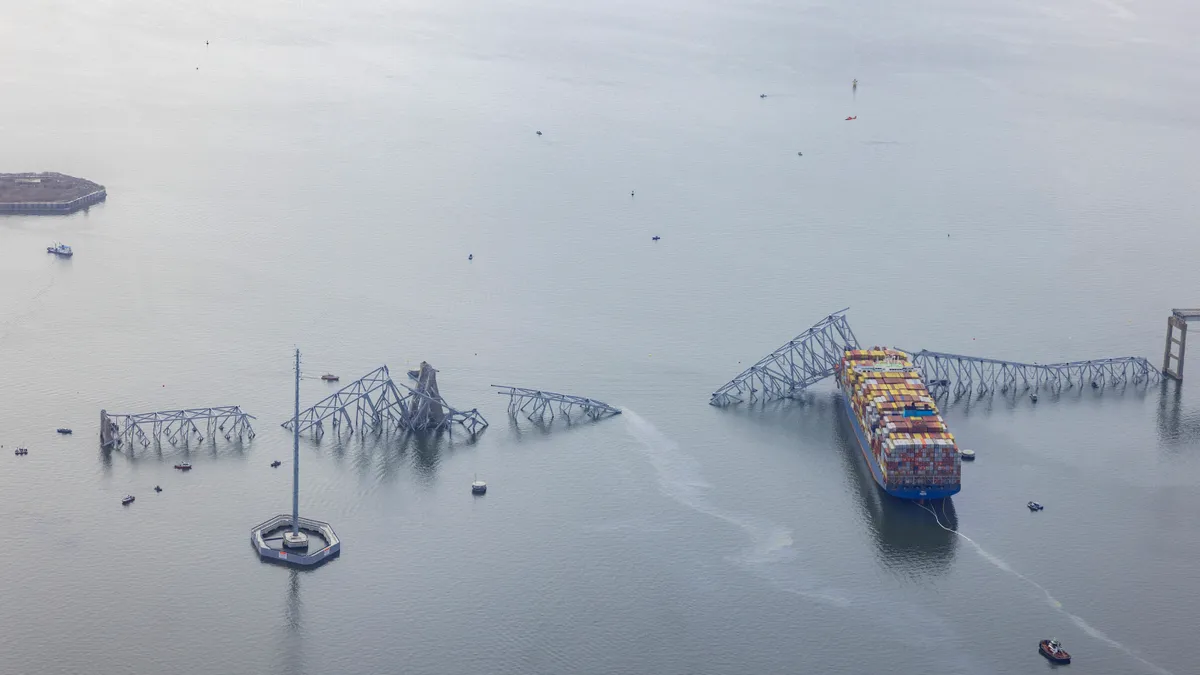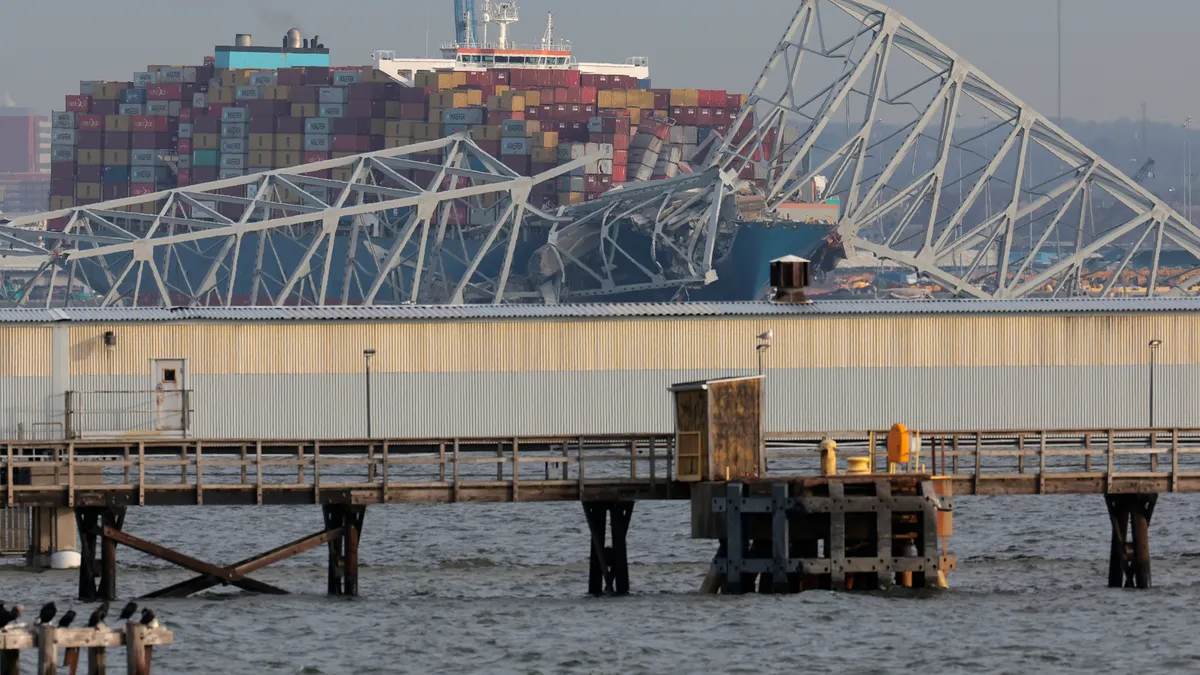Alternative East Coast ports are ready to receive cargo from vessels diverted from Baltimore, representatives of various gateways told Supply Chain Dive.
The ports of New York, New Jersey and Virginia have publicly said they are coordinating with shippers and their Maryland counterparts to handle a greater flow of cargo. The statements come after a ship tragically struck Baltimore's Francis Scott Key bridge, causing it to collapse and forcing the port to suspend most vessel traffic until further notice.
Since the majority of freight handled by the Port of Baltimore is roll-on, roll-off cargo — such as automobiles and farm machinery — specialized equipment is needed to handle diversions. Fortunately, some ports near Maryland are well equipped to handle the volumes, several supply chain data providers said in emails to Supply Chain Dive.
The Port of New York and New Jersey offers roll-on and roll-off services and considers itself the “one of the top auto processing and RORO gateways in North America,” according to the port's website. Similarly, the Port of Virginia has a dedicated roll-on and roll-off cargo facility in Newport News.
“We're not worried about the impact this will have on capacity, we have ample capacity. And we have honestly a fair amount of experience in handling surge cargo," Joe Harris from the Port of Virginia told Supply Chain Dive in an interview.
The maritime gateways also have suitable capacity from a container standpoint. Both ports have seen volumes rise to start the year and are among the top East Coast ports by volume.
In preparation, the alternative ports are already coordinating with counterparts and stakeholders in Baltimore, according to port officials.
The Port of Virginia’s operating team is working with ocean carriers whose vessels were due to call Baltimore, the port said Tuesday in a press release. Meanwhile, the Port of New York and New Jersey told Supply Chain Dive it has been in touch with its Baltimore counterparts, and stands ready for emergency assistance.
On Thursday morning, the governors of New York and New Jersey also issued a joint statement to that effect.
“We have seen over the past several years that indefinite port closures can impact national and global supply chains, which hurt everyday consumers the hardest,” Gov. Kathy Hochul and Gov. Phil Murphy said in the joint statement. “The Port Authority of New York and New Jersey can take on additional cargo, and we have directed the Authority to further evaluate all available resources to minimize supply chain disruptions.”
Edwin Lopez contributed to this story.



